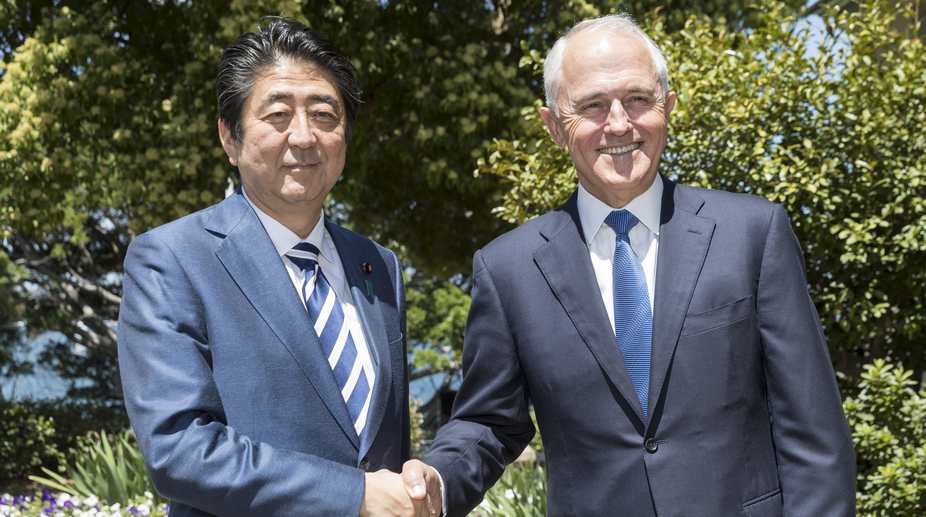Elon Musk hits out at Australia over ruling to hide stabbing videos
Tech billionaire Elon Musk has hit out at Australia over the country's attempts to ban footage of a Sydney church stabbing on his social media platform X.

Japanese Prime Minister Shinzo Abe (L), Australia's Prime Minister Malcolm Turnbull (PHOTO: AFP)
Australia's Prime Minister Malcolm Turnbull will attempt to fast-track a parliamentary vote to approve the Trans-Pacific Partnership (TPP) in a bid by Japan and Australia to pressure the United States into signing the deal.
US President-elect Donald Trump, who is due to take office on January 20, had previously said there is no way he would ratify the deal as he moves towards creating a more protectionist America, Xinhua news agency reported on Monday.
Following meetings with Japanese Prime Minister Shinzo Abe at the weekend, Turnbull said he would encourage the other 10 nations to approve the deal in order to pressure the US Congress into signing the agreement despite presidential disapproval, News Corp reported.
Advertisement
"While there is more than a whiff of protectionism in the global political environment, the (Japanese) Prime Minister and I are thoroughly committed to free trade and the open markets, to bringing into force the TPP," News Corp quoted Turnbull as saying.
The TPP is a free trade agreement (FTA) that will liberalise trade and investment between 12 Pacific-rim countries New Zealand, Australia, Brunei Darussalam, Canada, Chile, Japan, Malaysia, Mexico, Peru, Singapore, the US and Viet Nam.
Trump has previously described the TPP a "terrible deal" and has vowed to stop it in his path as soon as he assumes power.
"The TPP would be the death blow for American manufacturing. It would give up all of our economic leverage to an international commission that would put the interests of foreign countries above our own," Trump said in a speech last year.
Outgoing US President Barack Obama treated trade deals as a priority, but US opponents characterised the TPP as a secretive deal that favoured big business and other countries at the expense of jobs and national sovereignty.
Advertisement